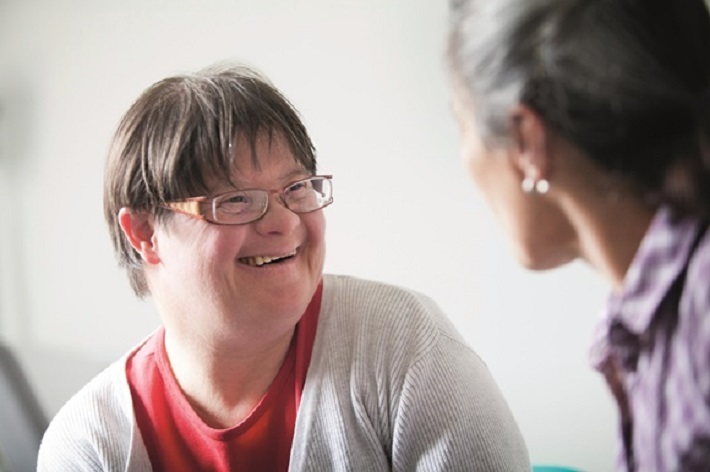What is Intellectual Disability?

It is a developmental disorder characterised by limitations in both intellectual functioning and adaptive behaviour, which covers many everyday social and practical skills. It originates before the age of 18 years. This definition was given by the American association of intellectual and developmental disabilities. It was formally known as mental retardation. Intellectual functioning is also known as intelligence. It prefers to the general mental capacity of a person for learning reasoning and problem solving. How can we measure intellectual functioning through an IQ test? An IQ is measured by dividing the mental age by chronological age and multiplying by hundred. Once intellectual disability is recognised, the level of severity is determined by the level of adaptive behaviour. Adaptive behaviour is a collection of conceptual social and practical skills that are learned and performed by people in their everyday lives. Conceptual skills. These are abilities that allow individuals to understand complex situations, to develop successful solutions. These include language and literacy time concept number concepts, self-direction social skills. These include competence, which facilitates interaction and communication with others using verbal and nonverbal ways. These include interpersonal skills, social responsibility, GU ability, social problem, solving ability to follow rules and obey laws and avoid being victimised.
Severity of Intellectual Disability

It can be mild, moderate, severe, or profound intellectual disability in mild intellectual disability. The IQ ranges between 50 to 70 and it represents 85% of population with intellectual disability. They can be educated usually until sixth grade and they are called educatable in moderate intellectual disability. The IQ ranges between 35 to 50, and they represent around 10% of population with intellectual disability. They can usually be educated up until second or third grade, and they are all trainable in severe intellectual disability. The IQ ranges between 20 to 35 and they usually represent around 4% of people with intellectual disability. They are usually notable and they are dependent on their caregivers in profound intellectual disability. The IQ is less than 20. It represents an only around one to 2% of people with intellectual disability. They cannot be educated and they require life support coming to the causes of intellectual disability. Firstly, we will talk about some genetic causes. These include chromosomal abnormalities like down syndrome to syndrome. INPO errors of metabolism like Phen Heur single gene disorders like tubus sclerosis, neurofibromatosis, cranial anomalies like micro carefully coming to perinatal causes. These can be infections like toxo plasmosis cyto virus, infection, prematurity, majority birth trauma, intrauterine growth retardation connected us placental abnormalities and drugs taken by a mother.
Management of Intellectual Disability
Coming to the management of intellectual disability in primary prevention. We should work on the improvement of the socioeconomic condition of this society ensure good perinatal medical care, universal immunisation, facilitating research activities in counselling. Secondary prevention includes early detection and treatment of preventable disorders. For example, early detection of handicaps with early remedial measures and treatment early recognition of the presence of intellectual disability and early rehabilitation. Integrating people with intellectual disability in society to avoid segregation and discrimination coming to, to prevention. We should focus on adequate treatment of psychological and behavioural problems, parental counselling, institutionalisation, or residential care for people with profound intellectual disability legislation like persons with disability act of 1995 and national trust act of 1999, which provide benefits for people with intellectual disability.
Practical Examples and Best Practices of Interaction and Communication between Healthcare Professionals and Adult Patients with Intellectual Disabilities

Practical skills are needed to address intellectual disability, and these include skills performed by hand or using equipment tools or technology. These include activities of daily living, occupational skills, travel and transportation schedules and routines use of money use of telephone.
Key Points to Consider
By improving your own awareness, knowledge, and communication within the community, you can help ease the health concerns of adults with Intellectual Disability.
There’s a lot of doctors that don’t know how to work with special need kids, so it’s, it’s nice to find the right doctors that have that right. Mesh with the family and with the patient. So it is good.
The goal is to allow patients to maintain the maximum appropriate levels of autonomy. Patients with ID may use supported decision making by selecting one or more persons, usually a family member to provide support in medical decisions, such as simplifying medical terms or assisting with expressive communication. The default for many healthcare providers is to require conservatorship also known as guardianship. This is the most restrictive option in regard to a patient’s autonomy to make medical decisions as it removes the patient’s decision, making authority and gives it to someone else.
It really behooves us to, to follow ethical and moral standard, to really check to see that your patient understands the risk and the benefits of the procedure that they’re about to take on, and to feel comfortable that, the decision is being made, appropriately. And that there isn’t, you know, a lack of understanding or a sense of coercion or you know, that you manipulate their fear or their anxiety or anything like that.



